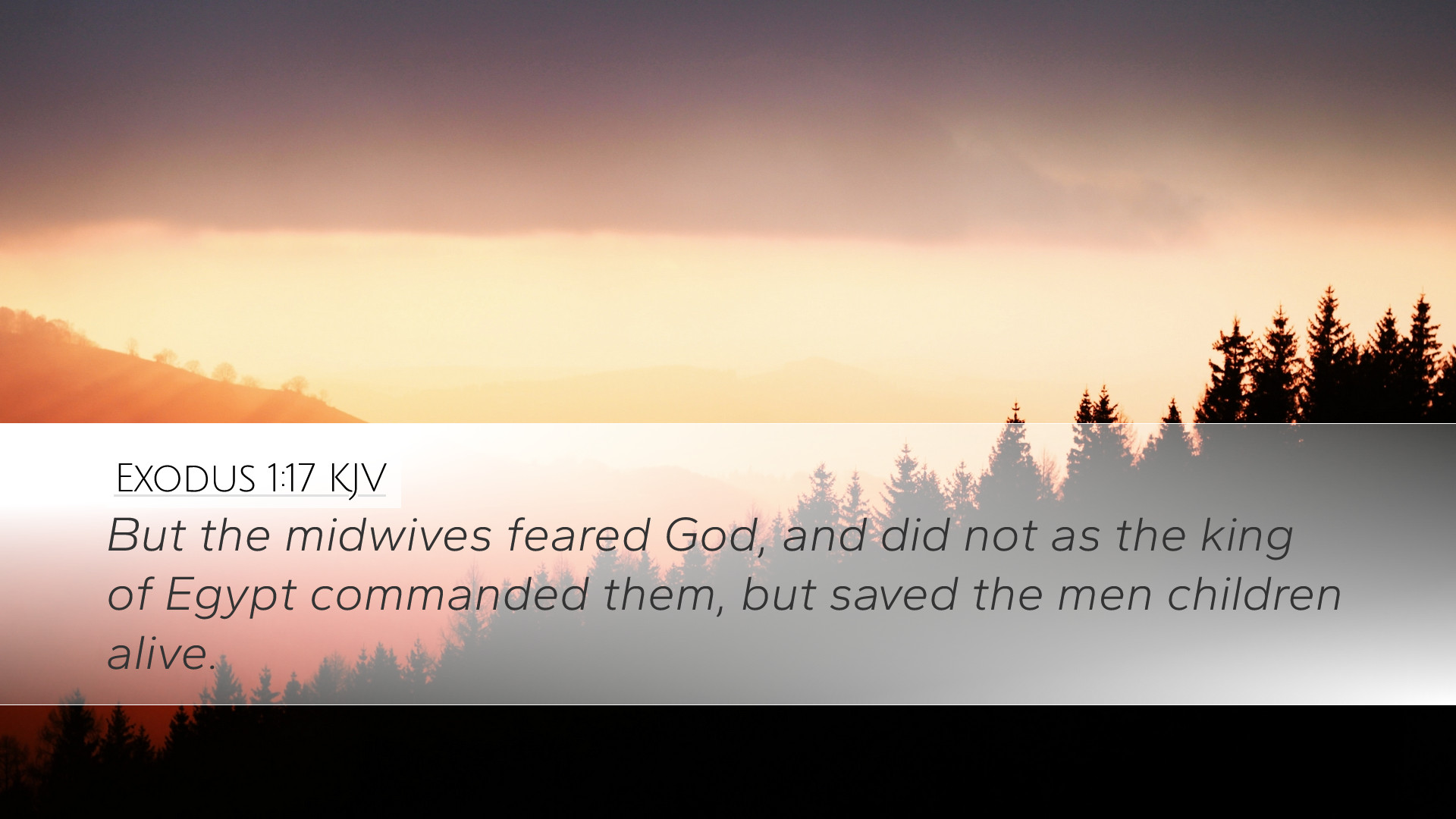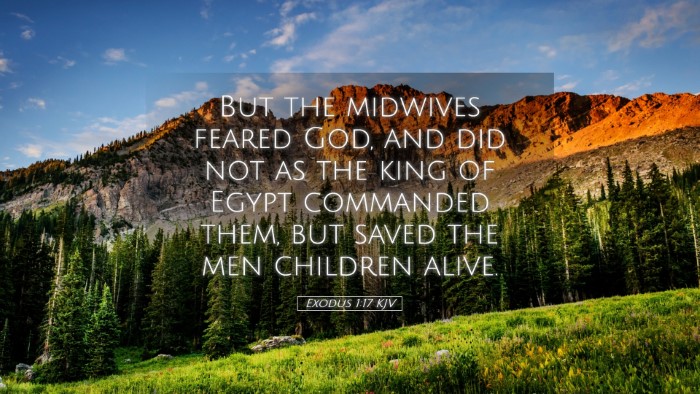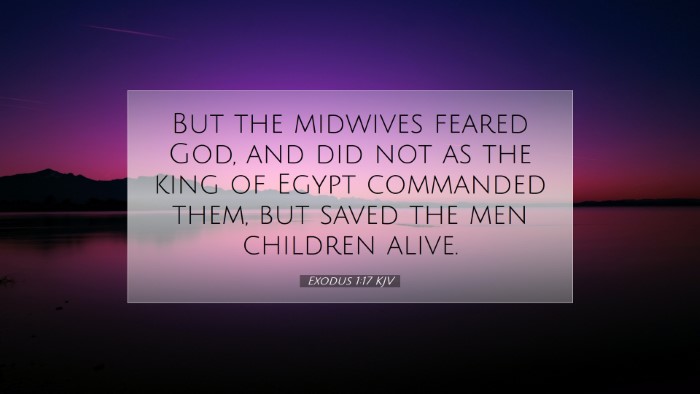Exodus 1:17 Commentary
Verse Context: Exodus 1:17 states, "But the midwives feared God, and did not do as the king of Egypt commanded them, but saved the male children alive."
Introduction
This verse occurs in a critical narrative within the book of Exodus, which describes the oppression of the Israelites in Egypt. The midwives play a pivotal role in defying Pharaoh's oppressive decree, showcasing their fear of God over fear of man. Their actions deliver a powerful message about obedience to divine authority.
The Fear of God
The phrase "feared God" is central to understanding the midwives' motivation. As noted by Matthew Henry, the fear of God compels believers to prioritize divine commands over human authority. This demonstrates a profound understanding of righteousness that transcends cultural and governmental mandates.
- Spiritual Integrity: The midwives displayed spiritual integrity by prioritizing God's will, suggesting that true obedience often leads to moral courage.
- Divine Fear vs. Human Fear: Their decision to disobey Pharaoh’s edict illustrates a critical choice, reflecting the biblical truth found in Acts 5:29, "We ought to obey God rather than men."
Courageous Action
Albert Barnes emphasizes the courage of these midwives. Their refusal to comply with a tyrannical decree highlights the moral responsibility individuals have when faced with unjust laws or commands. This courage serves as an example for believers who may find themselves in similar predicaments today.
- Active Resistance: They took active measures to protect the Hebrew children, indicating that obedience to God may sometimes require direct action against oppression or injustice.
- Empowerment of Women: The narrative showcases the power and influence of women—an often overlooked aspect of biblical history. The midwives, as instrumental figures, contribute to the survival of their people.
God’s Favor and Reward
Following their courageous actions, it is significant to note that God rewarded the midwives, as stated in the verses that follow. Adam Clarke points out that divine approval often follows acts of bravery and righteousness, further underscoring the theological principle that God honors those who stand for truth.
- Divine Blessing: The text indicates that not only was their fear of God justified, but it was also rewarded with families of their own, exemplifying how God blesses those who act in accordance with His will.
- A Lesson for Faithfulness: The accounts of their faithfulness serve as a reminder that God sees and honors acts performed in faith, leading to His providential care.
Theological Implications
This verse reverberates with theological significance. It sheds light on the nature of divine authority versus human authority and invites reflection on the Christian's duty to uphold justice and righteousness. A few key theological reflections emerge:
- The Sovereignty of God: God's sovereignty is evident in the preservation of His people despite oppressive regimes. The midwives' actions reveal the unfolding of God’s redemptive plan.
- Ethical Resistance: This narrative encourages believers to engage in ethical resistance when confronted with immoral laws, echoing throughout history in various movements for justice.
- Role of Fear and Faith: The interplay between fear and faith continues to shape the believer's life, reminding them of the necessity to fear God above all else.
Application for Today
In modern contexts, this passage challenges pastors, students, and theologians to embrace acts of courageous faith. Each believer is called to discern and navigate the complex moral landscapes they encounter.
- Discerning God’s Voice: It encourages an active engagement with God’s Word and personal conviction, equipping believers to stand firm against cultural pressures.
- Community Responsibility: While the midwives acted individually, their actions had a collective impact. Similarly, believers are called to engage with their communities to seek justice and uphold truth.
- Hope in God’s Deliverance: Finally, the passage invites a reminder that God is always at work even when circumstances appear dire, encouraging confidence in His promise of deliverance.
Conclusion
Exodus 1:17 encapsulates a profound moment in the narrative of Israel’s oppression and reveals critical themes of authority, courage, and faithfulness. The midwives provide an enduring example for all believers, encouraging us to fear God and act faithfully, even in the face of significant challenges. As we seek to apply these timeless truths, may we be emboldened to act justly, love mercy, and walk humbly with our God.


